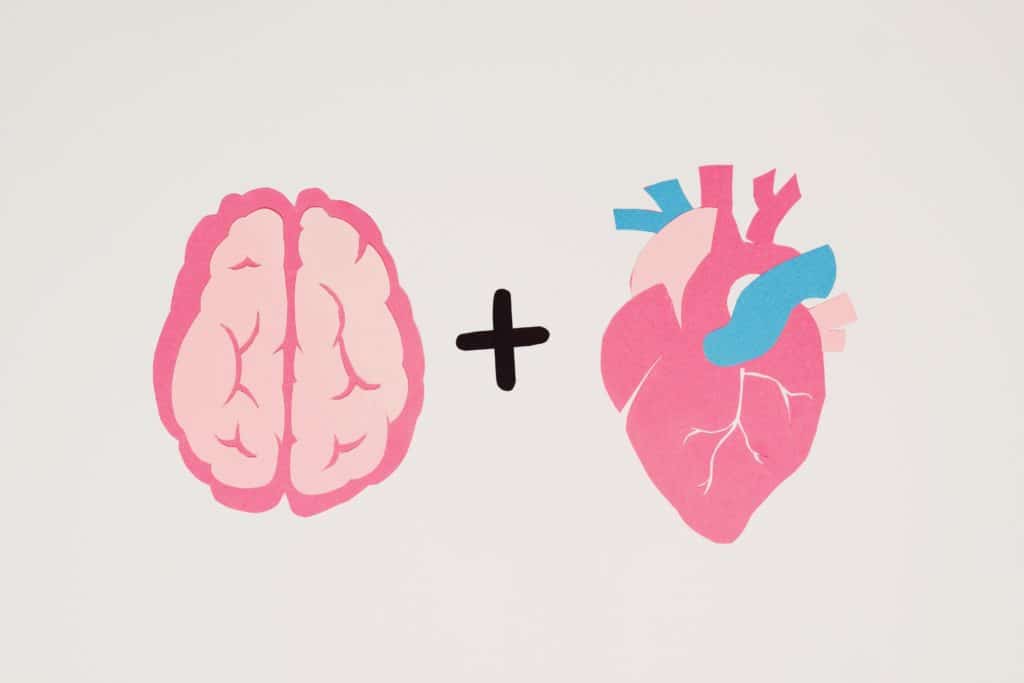Methamphetamine, commonly known as meth, has become a global scourge, ensnaring countless individuals in its devastating grip. This highly addictive drug not only wreaks havoc on the lives of those who use it but also leaves a trail of destruction in its wake, affecting families and communities. As the number of people falling victim to meth addiction continues to rise, it’s truly important to understand the profound and far-reaching consequences of this dangerous substance.
Methamphetamine Addiction
Methamphetamine addiction is a severe and complex condition that goes beyond casual meth use. It is characterized by an overwhelming desire to use the drug, despite the short and long-term effects of meth on an individual’s life. The long-term effects of meth addiction can be devastating, as users find themselves trapped in a cycle of compulsive use and psychological dependence.
- Compulsive Use: One of the hallmarks of meth addiction is the uncontrollable urge to use the drug regularly. This compulsive behavior sets addiction apart from casual use, where individuals might engage with meth on a non-regular basis without developing a dependency.
- Psychological Dependence: Meth addiction is marked by a mental fixation on obtaining and using the drug. This psychological dependence is a key factor that distinguishes addiction from casual use, which doesn’t necessarily lead to the same level of mental and physical reliance on meth.
- Chronic Behavior: Individuals struggling with meth addiction often find themselves using the drug in larger amounts or over a longer period than they initially intended. This persistent behavior pattern is a clear sign of addiction and is not typically seen in casual use.1
- Meth’s Prevalence: Between 2015 and 2018, the rate of past-year methamphetamine use among adults in the United States was approximately 6.6 per 1,000 individuals.1 This statistic highlights the widespread nature of meth use and the potential for addiction.
- Co-occurring mental health disorders: Many meth users also suffer from mental illnesses, which can complicate their addiction and make recovery more challenging.
By recognizing the personal struggles faced by those battling addiction, as well as the broader social factors that contribute to meth use, we can develop targeted intervention programs. These programs should focus on both the psychological aspects of addiction and the social determinants that fuel it. Only by taking a comprehensive approach can we hope to reduce the rates of meth use and provide meaningful support for affected individuals and their communities.
Methamphetamine Abuse
Methamphetamine abuse is a severe public health problem that goes beyond occasional use, leading to frequent and intense misuse that can have devastating long-term effects of meth on the user’s life. As individuals transition from casual meth use to abuse, they often experience a significant increase in the frequency and quantity of the drug consumed, along with a noticeable decline in their social and occupational functioning. These are the characteristics of abuse vs. casual use:
- Pattern of Use: One of the key differences between meth abuse and casual use is the persistent pattern of drug use that leads to significant impairment or distress. While casual users might experiment with meth occasionally without it becoming a central focus of their lives, abusers often find themselves caught in a cycle of compulsive drug-seeking behavior.
- Impact on Life: The short and long-term effects of meth abuse can be far-reaching, affecting an individual’s relationships, job responsibilities, and social obligations. Meth use takes precedence over other aspects of life, abusers often experience a deterioration in their overall well-being and functioning.
- Consumption Frequency: Casual meth use is typically characterized by infrequent, controlled consumption that doesn’t interfere with daily responsibilities. Meth abuse involves using the drug more frequently and in larger amounts, leading to a range of negative consequences.
The long-term effects of meth abuse extend beyond the individual, impacting entire communities. The rapid progression from casual use to abuse shows the need for increased awareness, early intervention, and comprehensive treatment strategies. By addressing meth abuse proactively and providing support for those struggling with addiction, we can work towards mitigating the destructive effects of this drug and helping individuals reclaim their lives from the grip of meth abuse.
Long-term Effects of Methamphetamine Use
The long-term effects of meth can be devastating, impacting nearly every aspect of an individual’s life. From psychological and neurological problems to social and economic consequences, the effects of meth abuse can persist long after an individual has stopped using the drug.
- Psychological Effects: One of the most concerning long-term effects of meth is the persistent cognitive deficits that users may experience. Chronic meth use can lead to significant problems with memory, attention, and decision-making, making it difficult for individuals to function in their daily lives. Meth abuse can cause structural and functional changes in the brain, particularly in regions involved in cognitive control and emotional regulation. These alterations can result in impaired impulse control, increased risk-taking behavior, and difficulty with problem-solving and learning.
- Neurological Effects: Chronic meth use can have devastating effects on the brain’s dopaminergic system, which plays a crucial role in regulating pleasure, motivation, and motor function. Meth abuse can lead to a depletion of dopamine receptors, resulting in anhedonia (an inability to feel pleasure) and movement disorders such as Parkinson’s disease. The long-term effects of meth on the brain can also include an increased risk of stroke, seizures, and other neurological complications, showing the need for prevention and early intervention efforts.
- Social Impacts: As meth becomes the central focus of an individual’s life, they may experience increasing social isolation as relationships with family, friends, and colleagues become strained or severed. Meth users may withdraw from social activities, neglect important social obligations, and engage in conflicts or aggressive behavior toward others, further exacerbating their isolation.
- Economic Impacts: The compulsive nature of meth use can make it difficult for individuals to maintain employment, as they may frequently miss work, arrive late, or exhibit poor performance due to the effects of the drug. This can lead to job loss, financial instability, and even homelessness in severe cases. The economic burden of meth addiction can be substantial, as users may exhaust their financial resources to support their habit, leading to debt, poverty, and a reliance on public assistance.
The long-term effects of meth serve as a stark reminder of the importance of prevention, early intervention, and comprehensive treatment for meth addiction. By addressing the multifaceted consequences of chronic meth use and providing individuals with the support they need to rebuild their lives, we can work towards breaking the cycle of addiction and promoting lasting recovery.
Immediate Physical and Psychological Effects
Meth abuse can take a heavy toll on an individual’s physical health. The long-term effects of meth on the body can be wide-ranging and severe, affecting multiple organ systems. Two of the most significant physical consequences of meth abuse include:
- Cardiovascular Problems: Meth use can cause rapid heart rate and elevated blood pressure, putting immense strain on the cardiovascular system. Over time, this can lead to serious cardiac events, such as heart attacks, which can be life-threatening.
- Hyperthermia: Meth abuse can cause an individual’s body temperature to rise to dangerously high levels, a condition known as hyperthermia. If left untreated, hyperthermia can result in critical organ damage and even death.
Meth abuse can have a profound impact on an individual’s mental health, leading to a range of psychological problems. The long term effects of meth on the brain can be particularly devastating, altering brain chemistry and functioning. Some of the most common psychological effects of meth include:
- Psychosis: Meth users may experience vivid hallucinations, both auditory and visual, which can be highly distressing and disorienting. These psychotic episodes can persist even after the individual has stopped using the drug.
- Depression: The short and long-term effects of meth abuse can lead to severe depression. As the drug depletes the brain’s natural neurotransmitters, users may experience feelings of hopelessness, despair, and a lack of motivation.
- Paranoia: Meth abuse can cause intense and irrational feelings of distrust or suspicion, which can escalate into full-blown delusional thoughts. 2 This paranoia can strain relationships and lead to social isolation.
Methamphetamine Health Risks
Methamphetamine abuse can have a wide range of health consequences, both in the short and long term. The effects of meth on the body and mind can be devastating, leading to a variety of physical and psychological problems that can persist long after an individual has stopped using the drug.
- Short-term Health Impacts: The short-term effects of meth use can be intense and immediately noticeable. Users may experience increased heart rate and blood pressure, elevated body temperature, and heightened wakefulness.3 These effects can significantly strain the body, particularly the cardiovascular system.
- Long-term Physical Consequences: The long-term effects of meth abuse can be even more severe, leading to extensive neural damage and physiological changes. Chronic meth use can cause dental issues, such as tooth decay and gum disease, as well as skin sores resulting from compulsive scratching.3 These physical consequences can be difficult to reverse and require extensive medical intervention.
The health risks associated with meth abuse highlight the importance of prevention and early intervention efforts. By educating individuals about the potential consequences of meth use and providing access to effective treatment options, we can work towards reducing the devastating impact of this drug on individuals, families, and communities. Those struggling with meth addiction must receive comprehensive support to address both the physical and psychological aspects of their substance use disorder.
Methamphetamines Withdrawal Symptoms
Methamphetamine withdrawal can be a challenging and uncomfortable process, as the body and mind adjust to functioning without the drug. Individuals who have developed a dependence on meth may experience a range of withdrawal symptoms when they attempt to quit or reduce their use.
- Common Symptoms Encountered During Withdrawal: Meth withdrawal can involve a variety of psychological and physical symptoms. Individuals may experience severe depression, anxiety, and fatigue as their brain chemistry adapts to the absence of the drug. Additionally, some users may continue to experience psychosis, including hallucinations and delusions, during the withdrawal process. These symptoms can be distressing and may require professional support to manage effectively.
- Timeline of the Withdrawal Process: The onset and duration of meth withdrawal symptoms can vary depending on factors such as the length and severity of an individual’s meth use. Typically, withdrawal symptoms can begin within a few hours to days after the last use of the drug. Acute symptoms often peak within the first week of withdrawal and gradually decrease over the following weeks. However, some individuals may experience prolonged symptoms, known as post-acute withdrawal syndrome (PAWS), which can persist for months or even years after quitting meth.
Navigating the challenges of meth withdrawal often requires a comprehensive approach, including medical supervision, psychological support, and ongoing aftercare. By providing individuals with the resources and support they need to manage withdrawal symptoms and maintain their recovery, we can help them break free from the cycle of meth addiction and build a foundation for a healthier, drug-free future.
Quick Tip
How long does methamphetamine withdrawal last?
The duration of meth withdrawal can vary from person to person, depending on factors such as the length and severity of their meth use, as well as individual differences in physiology and mental health. Generally, the acute withdrawal phase, characterized by the most intense symptoms, lasts about 7-10 days. Though some symptoms, such as depression, anxiety, and cravings, can persist for several weeks or even months.
Methamphetamine Overdose Symptoms
- Hyperthermia: Dangerously high body temperature can lead to seizures, organ damage, and potentially fatal complications.
- Cardiac Arrhythmia: Irregular heartbeat that can cause the heart to stop functioning effectively, resulting in organ failure and death.
- Stroke: A sudden increase in blood pressure and heart rate can cause blood vessels in the brain to rupture, leading to permanent brain damage or death.
- Chest Pain: A sign of cardiac distress that may indicate a heart attack or other severe cardiovascular complications.
- Extreme Agitation and Paranoia: Meth overdose can cause intense psychological symptoms, such as agitation, paranoia, and hallucinations, which can put the individual and others at risk.
Methamphetamine Treatment Options
Overcoming methamphetamine addiction is a challenging but achievable journey, and understanding the available treatment options is a key step in the recovery process. While there is no one-size-fits-all approach to treating meth addiction, a combination of medical and therapeutic interventions can help individuals break free from the cycle of abuse and build a foundation for a healthier, drug-free life. Here are some of the current medical and therapy treatments available, as well as their effectiveness:
- Behavioral Therapies: Cognitive-behavioral therapy (CBT) and contingency management interventions have shown promise in treating meth addiction. CBT focuses on helping individuals identify and change the thought patterns and behaviors that contribute to their substance use. Contingency management uses incentives to reinforce positive behaviors, such as abstinence from meth.
- Pharmacotherapy: Unlike other substance use disorders, such as opioid addiction, there are currently no FDA-approved medications specifically designed to treat meth dependence. However, researchers are actively exploring potential pharmacological interventions that may help reduce cravings, mitigate withdrawal symptoms, and support long-term recovery. Some studies have investigated the use of medications such as bupropion, naltrexone, and modafinil as potential treatments for meth addiction, but more research is needed to establish their safety and efficacy.
- Benefits of Behavioral Interventions: While behavioral therapies can be truly important in treating meth addiction, their effectiveness often depends on a range of individual and environmental factors. These interventions can help individuals develop the skills and strategies needed to maintain abstinence, improve their mental health, and rebuild their lives. However, the success of these treatments often requires significant personal commitment, as well as support from family, friends, and healthcare providers.
- High Relapse Rates: One of the most significant challenges in treating meth addiction is the high risk of relapse, particularly in the early stages of recovery. The long-term effects of meth abuse on the brain can make it really important for individuals to resist cravings and maintain their commitment to sobriety. Relapse prevention strategies, such as identifying triggers, building a strong support network, and engaging in ongoing therapy, are truly important components of a comprehensive treatment plan.
Treating methamphetamine addiction is a complex and multifaceted process that requires a personalized approach tailored to each individual’s unique needs and circumstances. While current treatment options have shown promise in helping individuals achieve and maintain recovery, much work still needs to be done to develop more effective and accessible interventions. By continuing to invest in research, education, and evidence-based treatment programs, we can help more individuals break free from the devastating grip of meth addiction and build a path toward a brighter, healthier future.
What are the long-term effects of methamphetamine on the brain?
Can methamphetamine use cause permanent damage?
How does methamphetamine affect mental health in the long run?
Methamphetamine Rehabilitation Programs
Seeking help for methamphetamine addiction is a courageous and truly important step toward recovery. Rehabilitation programs play a huge role in providing individuals with the support, tools, and resources they need to overcome addiction and build a foundation for long-term sobriety. Knowing the different types of programs available and the factors influencing recovery success can help individuals make informed decisions about their treatment options. Here are some of the types of programs available and their success rates:
- Inpatient Programs: These intensive residential programs provide 24/7 care and support in a structured, drug-free environment. Inpatient treatment is often recommended for individuals with severe meth addiction or co-occurring mental health disorders. Patients participate in various therapies during their stay, including individual and group counseling, behavioral interventions, and holistic activities to promote healing and self-discovery.
- Outpatient Programs: Outpatient treatment allows individuals to receive addiction treatment while continuing to live at home and maintain some of their daily responsibilities, such as work or school. These programs typically involve several hours of therapy and support services each week and may include individual counseling, group therapy, and family therapy. Outpatient programs can be a good option for individuals with mild to moderate meth addiction who have a strong support system and a stable living environment.
- Community-Based Programs: Community-based programs may include sober living homes, peer support groups, and faith-based organizations. These programs can be really important in helping individuals transition from formal treatment back into their daily lives, providing ongoing support and resources to help prevent relapse and promote continued growth and healing.
- Variable Success Rates: The success rates of meth rehabilitation programs can vary widely, depending on a range of individual and environmental factors. Some studies suggest that long-term recovery rates for meth addiction may be lower than those for other substance use disorders, highlighting the importance of comprehensive, evidence-based treatment approaches.
- Support Systems: A strong support system, including family, friends, and peers in recovery, can be truly important in promoting long-term recovery. Individuals who have positive, supportive relationships are more likely to stay engaged in treatment and maintain their sobriety over time.
- Co-Occurring Disorders: The presence of co-occurring mental health disorders, such as depression or anxiety, can significantly impact an individual’s recovery journey. Addressing these underlying mental health concerns through integrated treatment approaches is important for promoting long-term recovery and preventing relapse.
Choosing the right methamphetamine rehabilitation program is a deeply personal decision that should take into account an individual’s unique needs, circumstances, and goals. By exploring the different types of programs available and understanding the factors that influence recovery success, individuals can make informed choices about their treatment options and take important steps toward a healthier, drug-free future. Remember, recovery is a journey; seeking help shows strength and courage.
Key Takeaways
- Key Takeaways
- Methamphetamine is a highly addictive stimulant drug that can have severe and far-reaching consequences on an individual's physical, mental, and social well-being.
- The long-term effects of meth abuse can include cardiovascular problems, neurological damage, cognitive impairments, and mental health issues such as depression, anxiety, and psychosis.
- Effective treatment options for meth addiction include behavioral therapies, medication-assisted treatment, and support groups, which provide the tools and resources necessary for recovery.
- The high risk of relapse associated with meth addiction highlights the importance of ongoing support and relapse prevention strategies.
Methamphetamine Recovery Process and Relapse Prevention Strategies
Overcoming methamphetamine addiction is a challenging but hopeful journey that involves several key phases, from initial detoxification to achieving and maintaining long-term sobriety. Effective relapse prevention strategies are truly important for sustaining recovery and often involve individual support, therapy, and community involvement. Understanding the recovery process and the various techniques available can help individuals navigate the long-term effects of meth addiction and build a strong foundation for a drug-free life.
- Detoxification: The first step in the recovery process is detoxification, which involves medically supervised withdrawal to manage the physical and psychological symptoms of meth detox safely. During this phase, individuals may experience intense cravings, anxiety, and other effects of meth withdrawal, making professional support really important.
- Acute Treatment: Following detox, the focus shifts to addressing the underlying psychological and emotional factors that contribute to addiction. This acute treatment phase typically involves various forms of therapy, such as cognitive-behavioral therapy (CBT) and motivational interviewing, which help individuals develop coping skills and address the root causes of their meth use.
- Long-term Sobriety: Achieving long-term sobriety requires ongoing support and a commitment to personal growth and development. Strategies for maintaining sobriety may include engaging in regular therapy sessions, attending support group meetings, and developing a strong network of sober peers and mentors.
- Ongoing Therapy: Participating in therapy, such as CBT, can be important for developing effective coping mechanisms and preventing relapse. Therapy can help individuals identify and manage triggers, build healthy relationships, and address any co-occurring mental health concerns that may contribute to the long-term effects of meth abuse.
- Support Groups: Engaging in peer support groups, such as Narcotics Anonymous or SMART Recovery, can provide individuals with a sense of community and accountability as they navigate the challenges of recovery. These groups offer a safe space to share experiences, learn from others, and find motivation to stay committed to sobriety.
- Medications: While there are currently no FDA-approved medications specifically for treating meth addiction, some medications may be used to help alleviate the effects of meth withdrawal, reduce cravings, or address co-occurring mental health disorders. Working closely with a healthcare provider to explore medication options can be an important part of a comprehensive recovery plan.
Family and Community Support: Building a strong support network of family, friends, and community resources is truly important for long-term recovery. Loved ones can provide emotional and practical support, while community resources, such as sober living homes or vocational training programs, can help individuals build a fulfilling, drug-free life.
The path to recovery from methamphetamine abuse requires a comprehensive approach that addresses both the immediate and long-term effects of meth addiction. By understanding the recovery process and utilizing a range of relapse prevention strategies, individuals can develop the skills and support systems necessary to overcome the challenges of addiction and maintain lasting sobriety. With the right tools and support, it is possible to break free from the grip of meth addiction and build a healthy, rewarding life in recovery.
Get Help for Substance Abuse at Cornerstone
We offer a wide range of treatment for mental health and substance abuse conditions. Begin your journey to recovery today!
How We Can Help!
The long-term effects of methamphetamine addiction can be devastating, impacting an individual’s physical, mental, and social well-being. From cardiovascular problems and neurological damage to strained relationships and financial instability, the consequences of chronic meth abuse extend far beyond the individual, affecting families, communities, and society as a whole. Addressing this complex issue requires a comprehensive approach that includes prevention, treatment, and long-term support.
If you or a loved one is struggling with the long-term effects of meth addiction, it’s important to seek help from a reputable and experienced treatment center. At Cornerstone Healing Center in Arizona, we offer a range of evidence-based services tailored to each individual’s unique needs, including medical detox, behavioral therapies, and aftercare planning. Our compassionate and knowledgeable staff is dedicated to helping individuals overcome the grip of meth addiction and build a strong foundation for lasting recovery. Take the first step towards a healthier, more fulfilling life by contacting Cornerstone Healing Center today.









